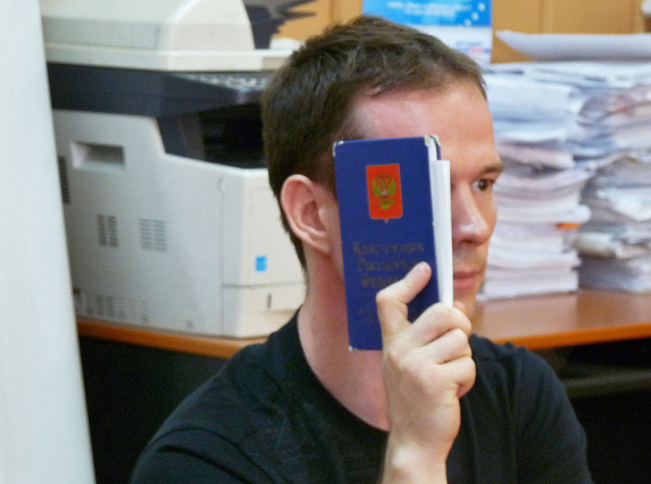MOSCOW, March 10 (RAPSI) – The Supreme Court of Russia has disclosed its reasons to acquit activist Ildar Dadin, who was the first person convicted of numerous violations of protest laws, stating that terms for criminal persecution in this case were violated, RIA Novosti reported on Friday.
The Supreme Court explained that the article of the Criminal Code prohibiting violations of protest laws excludes possibility of criminal prosecution if at the time of crime there were no active court rulings regarding administrative liability of a defendant. These rulings have to be issued at least three times in the period of 180 days.
When Dadin became a defendant in criminal case back in December 2014 rulings regarding administrative violations have not come into full force yet, meaning that there were no legal grounds to state that Dadin violated legislation several times.
Dadin was acquitted on February 22 when the Supreme Court’s Presidium overturned his 2.5-year prison sentence and ruled to release him.
The court held that criminal proceedings against Dadin should be dismissed because of the absence of elements of a crime in his actions. The activist has a right to rehabilitation, according to the court’s ruling.
Earlier, Deputy Prosecutor General Leonid Korzhinek asked the court to reverse guilty verdict, drop criminal proceedings against Dadin and recognize his right to rehabilitation.
On March 7, Dadin filed an appeal with the European Court of Human Rights (ECHR) over unlawful stay in a penal colony.
On February 10, Russia’s Constitutional Court held that Dadin’s case must be reviewed. However, the contested Article of Russia’s Criminal Code was declared not contradictory to the Constitution.
Dadin was convicted and sentenced on December 7, 2015. Initially he received a 3-year prison term. The Moscow City Court later reduced the sentence to 2.5 years.
According to case papers, Dadin was arrested five times during rallies held between August 2014 and January 2015. Administrative proceedings were instituted against Dadin in all cases and he was fined. A criminal case was opened against him for participating in four meetings.
Dadin’s wife Anastasia Zotova wrote on Facebook in early November that her husband had been beaten and received murder threats when transferred to a penal colony in Karelia. The Federal Penitentiary Service (FSIN) launched a probe into the allegations. Later, the FSIN announced that independent medical commission from a local hospital had not found injuries on Dadin’s body.
On November 24, members of the European Parliament (MEPs) during a plenary session expressed concern over the welfare of Dadin and called on Russia to immediately release him. MEPs insisted on a thorough and transparent independent investigation into the situation with Dadin who had complained on a number of occasions of prison conditions and torture.
In early January, Zotova wrote on Facebook that Dadin was transferred from a prison in Karelia to Altai.
Council of Europe's Commissioner for Human Rights, Nils Muižnieks, said on Twitter that he welcomes the ruling of Russia's Supreme Court.
Spokesman of Russian President Dmitry Peskov told journalists that "this is a decision by the Supreme Court and it is necessary to respect any court rulings, all the more so, judgements by the Supreme Court."



